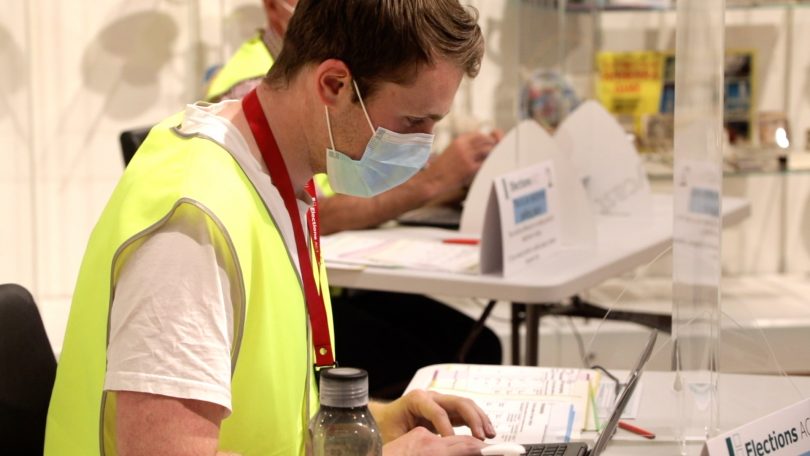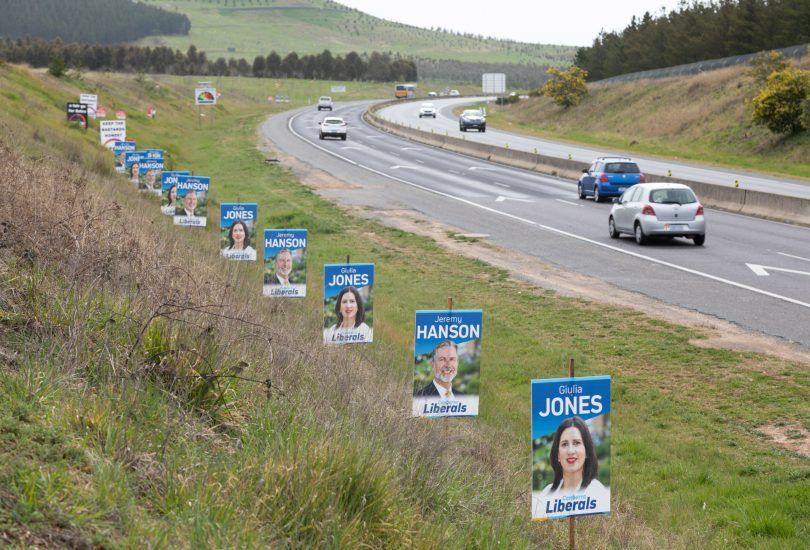
The Greens have renewed its push to lower the voting age in the ACT. Photo: Region Media.
The ACT Greens have proposed lowering the voting age in the ACT, banning or creating dedicated spaces for roadside election signage and capping electoral donations at $10,000 in a submission to the 2020 ACT Election review.
Former Greens MLA Caroline Le Couteur tried to make voting voluntary for 16 and 17-year-olds ahead of the 2020 ACT Election, which would have allowed around 8,500 younger people to vote last year.
The Canberra Liberals rejected any changes to the voting age in its submission, while ACT Labor said it supports Elections ACT considering lowering the age, but the party said voting should remain compulsory.
The Greens proposal to ban or limit roadside signage on public land was also rejected by the Liberals, who said it was an important way for their candidates to build their profile given “the limited engagement with local media by Canberrans”.
Although some reform in the area is likely given that Labor supports banning the unrestricted use of corflutes on public land and has suggested limited the number of corflutes each candidate can place in certain areas.

The ACT Greens want to ban or limit corflutes in public places. Photo: Michelle Kroll.
All three major parties also endorsed changes to electoral donations following recommendations from the ACT Electoral Commission in its report into the 2020 election, tabled in the Legislative Assembly last month.
The Electoral Commission has recommended that the ACT Government change the current laws to limit public funding that a political party or candidate can receive.
It also recommended the Legislative Assembly review the previous legislation, which imposed a $10,000 cap on political donations with the aim of reinstating a similar provision.
Parties and independents who secure more than 4 per cent of the primary vote currently receive $8.60 per vote.
Labor and the Liberals spent more than $1 million each during the 2020 election and received $880,000 and $785,000 from Elections ACT, respectively. However, the Greens spent $125,000 and received $315,000 from Elections ACT while Fiona Carrick spent $13,500 and received $32,600.
Labour DLP also came close to doubling their $13,000 spend at the election from the money it received from Elections ACT.
Labor agreed to limit public funding to the amount spent on elections so political parties cannot profit from elections. However, it rejected the donations cap, saying the introduction of expenditure caps and a new public funding model that superseded the provision was fairer.
“The ACT has one of the most rigorous donation disclosure regimes in Australia that already makes public the name of any organisation or individual donating over $1,000,” it said in its submission.
“This scheme will be further enhanced by even shorter reporting timeframes that come into effect from 1 July 2021.”
The Liberals said they wanted stronger regulation on associated entities, such as unions, that spend money on elections as third party campaigners.
“The clearest example of such a conflict was that the President of UnionsACT was a Labor Party candidate, and UnionsACT reported spending $15,874 as a third party campaigner,” former Canberra Liberals Director Josh Manuatu wrote in his submission.
“From the material that we are aware of, this was largely for the distribution of material solely in favour of the Labor Party’s campaign.”
The Greens and the Liberals both wanted to reduce the 100-metre campaigning exclusion zones outside polling places to the Federal regulation of six metres.
Labor did not specifically note whether it wanted the zone reduced but said it wanted the Electoral Commission to better enforce the current measures, saying the Commission could not take direct action against breaches.
Original Article published by Dominic Giannini on The RiotACT.





